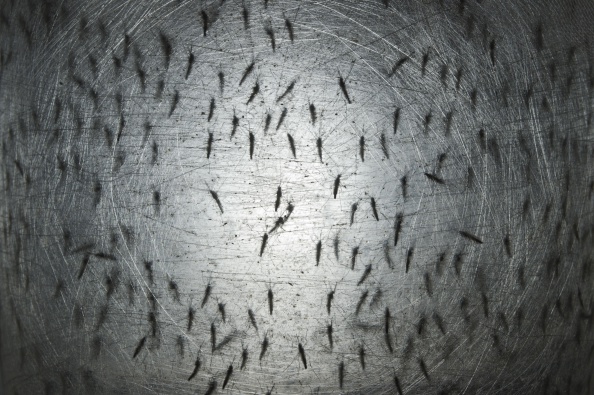By Delisa Morris
Impunity Watch Reporter, South America
In Rio de Janeiro, Brazilian researchers have released thousands of mosquitoes infected with a bacteria that suppress dengue fever.

The researchers believe that the mosquitoes will multiply, breed and become the majority of mosquitoes. They hope this will reduce cases of the disease. The initiative is actually a part of a larger program also taking place in Australia, Vietnam and Indonesia.
Dengue fever, is a mosquito-borne infection that causes a severe flu-like illness. The more severe forms include dengue shock syndrome and dengue hemorrhagic fever. Dengue fever must be treated before it turns into dengue shock syndrome or dengue hemorrhagic fever. Dengue fever is commonly found in urban areas of subtropical and tropical climates, such as Central and South America, various parts of Africa and Asia, the Caribbean and the Pacific.
The intracellular bacteria the mosquitoes were infected with, Wolbachia, cannot be transmitted to humans.
The program started in 2012. “Transparency and proper information for the household is a priority.” said Luciano Moreira of the Brazilian research institute Fiocruz, who is leading the project in Brazil. “Our teams performed weekly visits to the four neighborhoods in Rio being targeted. Mosquitoes were analyzed after collection in special traps.”
Ten thousand mosquitoes will be released each month for four months, the first release was in Tubiacanga, in the north of Rio.
The bacterium Wolbachia is found in 60% of insects. Wolbachia acts as a vaccine for the mosquito which carries dengue, Aedes aegypti, stopping the dengue virus multiplying in its body.
Aedes mosquitoes with Wolbachia become predominant without researchers having to constantly release more contaminated insects.
The program has already proved successful in Australia. Within 10 weeks on average Wolbachia mosquitoes became predominant.
Three more neighborhoods will be targeted next. There will be large scale studies to evaluate the effect of the strategy possibly in 2016.
Dengue fever re-emerged in Brazil in 1981 after an absence of more than 20 years. In the following 30 years, seven million cases were reported.
Brazil leads the world in the number of dengue cases, with 3.2 million cases and 800 deaths reported in the 2009-14 period. The disease continues to have implications for Brazil’s public health system and economy. There was large concern about dengue fever in Brazil during the World Cup.
For more information, please see:
BBC News — Brazil Releases ‘Good’ Mosquitoes to Fight Dengue Fever — 24 Sept. 2014
The Malay Mail Online — Researchers Release ‘Good’ Mosquitoes to Suppress Dengue Fever in Brazil — 26 Sept. 2014
International Business Times — Brazil Releases Thousands of ‘Good’ Mosquitos to Combat Dengue Fever — 25 Sept. 2014
The New Age Online — Brazil Releases Genetically Modified Mosquitoes to Fight Dengue Fever — 25 Sept. 2014